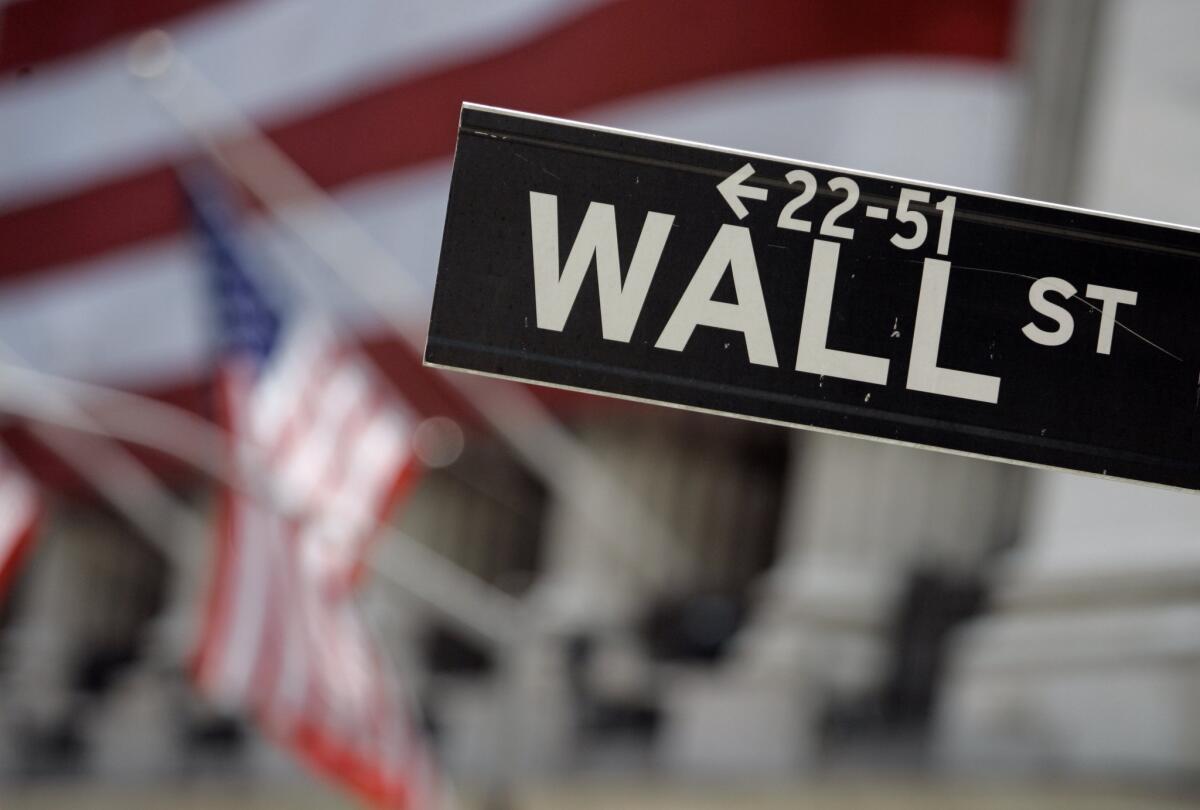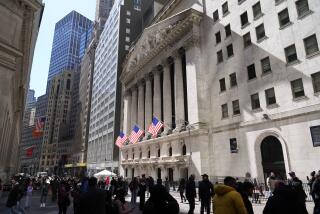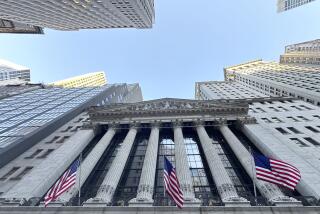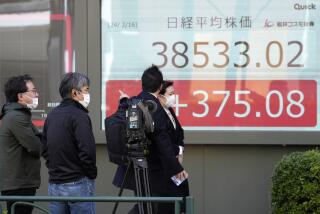Stocks rise to new records, helped by jobs report

A solid pickup in hiring last month helped push the stock market to record highs Friday. The gains were driven by energy, materials and industrial companies.
The Labor Department told investors what they had hoped to hear: Employers added more workers last month after a sluggish beginning to the year.
Energy companies rose as the price of oil recovered from a two-day plunge. Media companies such as CBS and Charter Communications somewhat recovered from their losses earlier in the week. Technology companies rose, but IBM missed out after billionaire investor Warren Buffett said he sold a large part of his stake in the company.
After a quiet morning, stocks rose in the afternoon. The Standard & Poor’s 500 index finished above the all-time high close it set March 1. The Nasdaq composite also closed at an all-time high, beating the record it set earlier in the week.
Scott Wren, senior global equity strategist at Wells Fargo’s Investment Institute, said stocks benefited from the combination of greater hiring and slower wage growth because if wages rise too quickly, that will affect corporate profits.
The Standard & Poor’s 500 index climbed 9.77 points, or 0.4%, to 2,399.29. The Dow Jones industrial average rose 55.47 points, or 0.3%, to 21,006.94.
The Nasdaq composite advanced 25.42 points, or 0.4%, to 6,100.76. The Russell 2000 index of smaller-company stocks climbed 8.15 points, or 0.6%, to 1,397.
Employers in the United States added 211,000 jobs in April, according to the Labor Department. That comes after slow hiring in the first three months of the year and sluggish economic growth.
Read more: Unemployment hits a 10-year low, and other takeaways from April’s jobs report »
Energy companies bounced back as the price of oil steadied. After two steep losses in three days, benchmark U.S. crude oil climbed 70 cents, or 1.5%, to $46.22 a barrel. Brent crude, the standard for international oil prices, rose 72 cents, or 1.5%, to $49.10 barrel. Oil prices fell earlier this week; investors are wondering if OPEC will extend a deal that trimmed oil production.
Occidental Petroleum climbed 4.1% to $60.40. Transocean jumped 8.1% to $11.18. Baker Hughes rose 3.3% to $59.33.
Basic materials makers advanced. Dow Chemical gained rose 2.7% to $63.09 and gas supplier Praxair rose 2.5% to $129.48. Fertilizer maker CF Industries climbed 5% to $28.42.
Apple climbed 1.7% to $148.96, another record.
CBS announced a bigger profit and more revenue than analysts expected, and its stock rose 2.1% to $65.20. Media companies have struggled the last few days as investors worried about declining cable ad revenue. Charter Communications, Scripps Networks and Tegna all traded higher.
Read more: Cord cutting and a soft advertising market take a toll on media stocks »
IBM fell 2.5% to $155.05 after Buffett said he’d sold about 25 million shares of the technology and consulting company, about a third of the stake that his Berkshire Hathaway firm owned. Buffett started buying IBM stock in 2011. IBM faces stiff competition from companies including Microsoft and Amazon, which have focused on cloud computing services. IBM reached an all-time high of $215 in early 2013.
Cosmetics maker Revlon plunged 23.6%, to $19.30 — its worst day since 2008 — after it said its sales in North America fell during the first quarter. That affected all parts of its business, as its consumer and professional divisions both reported smaller profits and lower sales than they did a year earlier. Revlon bought Elizabeth Arden in September, and sales for that business were about the same as they were in the year-earlier quarter.
Biotech drug companies slipped. Biogen slid 2.4% to $262.15 and Incyte sank 2.1% to $122.41. Celgene fell 1.6%, also closing at $122.41.
Bond prices held steady. The yield on the 10-year Treasury note remained 2.35%. High-dividend stocks did fairly well. Telecommunications companies recovered from a hard loss the day before, and utility companies rose. Banks traded lower.
Gold slipped $1.70 to $1,226.90 an ounce. The precious metal fell more than 3% this week, its biggest decline since right after November’s presidential election. Silver fell 3 cents to $16.27 an ounce. Copper rose 2 cents to $2.53 a pound.
Wholesale gasoline rose 2 cents to $1.50 a gallon. Heating oil rose 2 cents to $1.44 a gallon. Natural gas rose 8 cents, or 2.5%, to $3.27 per 1,000 cubic feet.
The dollar rose to 112.61 yen from 112.42 yen. The euro climbed to $1.0990 from $1.0981.
France’s CAC 40 jumped 1.1% as investors hoped that centrist candidate Emmanuel Macron will be elected president over the weekend. The CAC 40 is at its highest level since early 2008.
Britain’s FTSE 100 was up 0.7% and Germany’s DAX rose 0.5%. The Hang Seng in Hong Kong lost 0.8%. Markets in Japan and South Korea were closed for holidays.
ALSO
Air traffic control for drones is coming. Here’s how it could work
Jury awards record-setting $110.5 million in Johnson & Johnson baby powder cancer lawsuit
UPDATES:
2:10 p.m.: This article was updated with closing prices and context.
This article was originally published at 7:50 a.m.






